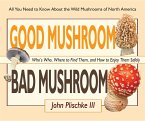In his seminal work, "Fiue Hundred Pointes of Good Husbandrie," Thomas Tusser presents a meticulously structured guide to agricultural practices, encapsulated in a rich tapestry of verse. Using five hundreds of pithy couplets, Tusser conveys practical wisdom and moral lessons to the yeomanry of 16th-century England. The poem not only serves as an instructional text but also reflects the socio-economic landscape of Tudor agriculture, emphasizing sustainable farming techniques alongside ethical considerations of stewardship and domestic management. Its didactic tone and accessible style make it a pivotal text bridging the gap between literary expression and agrarian pragmatism. Thomas Tusser, an accomplished poet and farmer, embodies the Renaissance spirit of blending art with practical knowledge. His own experiences in farming, particularly during the agricultural tumult of his time, shaped his insights on rural life. Tusser's familiarity with the challenges faced by the working class-evident through his detailed observations-translates into a genuine desire to educate and uplift his readers, tethering his poetic craft to his lived realities. "Fiue Hundred Pointes of Good Husbandrie" is an essential read for historians, agronomists, and literature enthusiasts alike, offering a profound understanding of Tudor agricultural life. Tusser's blend of poetry and practicality invites modern readers to reflect on their relationship with the land, making it a timeless resource in the dialogue surrounding sustainability and ethics in agriculture.
Dieser Download kann aus rechtlichen Gründen nur mit Rechnungsadresse in A, B, BG, CY, CZ, D, DK, EW, E, FIN, F, GR, H, IRL, I, LT, L, LR, M, NL, PL, P, R, S, SLO, SK ausgeliefert werden.









